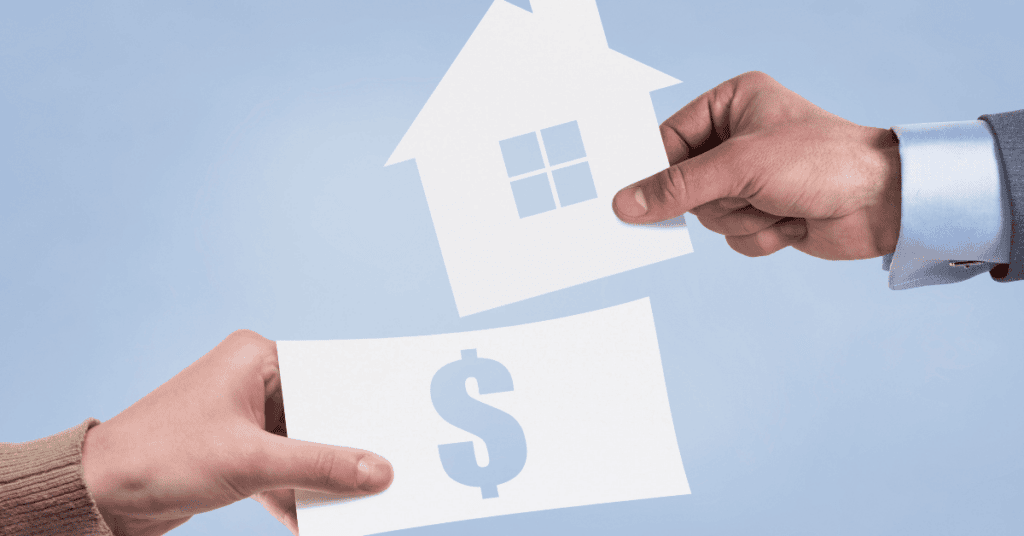Get Expert Financing
- Matched with investor-friendly lenders
- Fast pre-approvals-no W2s required
- Financing options fro rentals, BRRRR, STRs
- Scale your portfolio with confidence
Bank statement loans are an increasingly popular option for self-employed borrowers in New York who want to purchase a home.
This type of loan offers flexibility and can make it easier for those who don’t have tax returns to access the financing they need to buy a home.
This article contains affiliate links. We may receive compensation if you use a partner bank for financing. We never recommend a service we wouldn’t use ourselves. Period.
A bank statement loan is a type of loan that allows borrowers to use their bank statement deposits to determine their income rather than their tax returns.
This type of loan is particularly useful for self-employed individuals, small business owners, or those with irregular income who may have trouble meeting traditional loan requirements.
Perhaps you’re one of the 1.3 million freelancers in NYC (34% of the workforce) or otherwise run a small business in the state.
Lenders then use 30-100% of the average deposits (the “expense ratio”), depending on the business type. This can be a game changer as seen in this table.
| Bank Deposits | Adj. Income on Tax Returns | |
| 2021 | $150,000 | $50,000 |
| 2022 | $180,000 | $60,000 |
| Expense ratio | 50% | n/a |
| Qualification income | $6,875/mo | $4,583/mo |
| Est. max home price | $400,000 | $285,000 |
Estimated max purchase price based on 43% DTI, 20% down, $250 monthly debts, 1% property tax, $600 annual insurance, 8% rate for bank statement loan, and 6.5% rate for conventional. Example purposes only.
It’s important to note that bank statement loans often come with higher interest rates and stricter terms compared to traditional loans.
However, if you can’t seem to meet traditional loan requirements, a bank statement loan in New York can open up opportunities for home ownership, investment, and refinancing.
Bank statement loans in New York can be a great option for self-employed borrowers who may not have the traditional income documentation, such as tax returns or pay stubs, that traditional lenders require. The following are good candidates for this loan program:
| Realtors | Business owners | Real estate investors |
| Consultants | Gig workers | Independent contractors |
| Social media manager | Business coaches | Retirees |
| Sole proprietors | Freelancers | Contract tech workers |
| Managing partners | Life coaches | Personal trainers |
| Self-employed doctors | Dentists | Single-Member LLCs |
In short, almost anyone without a “regular job” could benefit.
This shortened bank statement loan process results in speedy approvals and funding that you won’t find with any other type of loan.
Bank statement loans are available throughout New York, but you can find several of them in the following cities
| Mount Vernon | Rochester | Glens Falls |
| Albany | Schenectady | New Rochelle |
| Buffalo | Yonkers | New York City |
Bank statement loan interest rates in New York are around 2% higher than Fannie Mae’s conventional rates.
The interest rates on bank statement loans are typically higher than conventional mortgages because they are considered riskier. The lender doesn’t have access to your tax returns, so they can’t verify your income in the same way as with a traditional mortgage. As such, lenders charge higher interest rates to offset this risk.
Is it hard to find a bank statement lender in New York?
It can be challenging to find a bank statement lender in New York, as not all banks offer these types of loans. However, there are some banks that specialize in providing bank statement loans to borrowers who may not meet traditional lending requirements. Some of these banks include NASB, Northstar Funding, Heritage Mortgage Banking, and Cross Country Mortgage. It’s important to note that eligibility requirements and loan terms may vary depending on the lender, so it’s essential to do your research and shop around to find the best lender for your specific scenario.
If you’re having trouble finding a bank statement lender in New York, don’t worry – we can help. Our team can match you with the perfect lender for your situation by asking a few simple questions.
Submit your loan scenario.While bank statement loans can be a good option for those who are self-employed or have irregular income, they are not the only option for a no-tax-return mortgage.
DSCR loans: Debt Service Coverage Ratio loans a property’s ability to cover its debt payments. Instead of looking at the borrower’s income, the lender looks at the property’s income-generating potential. This can be a good option for those who have rental properties or other types of income-generating real estate.
Submit your DSCR loan scenario.Asset Depletion: This option allows borrowers to use their liquid assets to qualify for a loan, rather than their income. The lender will divide the sum of the assets by a certain number of months to determine an equivalent monthly income. This may be ideal for those who have a lot of liquid assets but low income. For instance, if you have saved up $1 million, that equates to an income of $8,333 per month over the course of 120 months.
Stated Income: Some lenders may offer these types of loans, which do not require the borrower to provide income documentation. However, the borrower may need to have a higher credit score and make a larger down payment.
1099 Loans: These loans are designed for borrowers who receive 1099 income, such as freelancers or independent contractors. The lender will review the borrower’s 1099 forms and use that income to determine eligibility.
P&L loans: This option allows the lender to use a profit and loss statement from the borrower’s CPA to verify income.
Hard money loans: Hard money loans are short-term financing options that are typically used for fix-and-flip properties or other types of real estate investments. They are usually more expensive than traditional mortgages but can provide quick funding for those who need it.
Pros
Cons
Yes, you can get a loan based on your business bank statements or personal ones. Many banks and online lenders offer personal loans that are based on the amount of money in your bank account.
If you’re looking to get a bank statement loan, the minimum down payment required will depend on your credit score and the type of loan you get. Generally, you can qualify for a bank statement loan with a 10% down payment, but this may be higher depending on your credit score and other factors.
To qualify for a bank statement loan, lenders typically require 12 or 24 months’ worth of bank statements from the same account. Depending on the lender, there will be other requirements.
If you’re looking to qualify for a bank statement loan, you’ll typically need a credit score of at least 620. However, some lenders may require a higher score, such as 660 for a 10% down payment or 600 for a 15% down payment or greater. It’s important to note that the exact credit score needed will vary depending on the lender and other factors.
Bank statement loans can be the perfect option for self-employed borrowers in New York state who want to own a home but struggle with the documentation side.
With bank statement loans, you don’t need to rely on tax returns, and you may receive quick approval and funding. This type of loan offers the flexibility you need to give you more control over your mortgage financing potential.
See if you qualify for a New York bank statement loan.Our advice is based on experience in the mortgage industry and we are dedicated to helping you achieve your goal of owning a home. We may receive compensation from partner banks when you view mortgage rates listed on our website.

